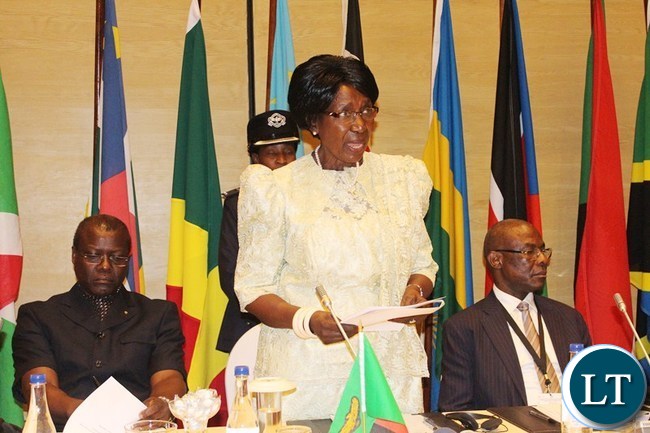
Since 1964, our country has had six presidents. The first president Kenneth Kaunda suffered a qualitative declivity. The second president Frederick Chiluba was driven by a fateful sense of entitlement. The third president Levy Mwanawasa was a candle in the wind. The fourth president Rupiah Banda remained in cardiogenic shock. The fifth president Michael Sata took the resolve of his people for granted, and his protégé the sixth president Edgar Lungu has become his alter ego.
While it is unfeasible to encapsulate the pros and cons of every president, there are some obvious leadership qualities, failures, faults, aptitudes, and faculties that determine each one’s strengths and weaknesses. My assessment of each leader is based on four simple, quantifiable elements: Vision, Policy-making, Integrity, and Creativity. The ranking is from best to worst.
1. Levy Mwanawasa (2002-2008). Strengths: Vision, Policy-making, Integrity. Weakness: Creativity.
Integrity is what held Mwanawasa’s virtues together. In 1994 when Michael Sata cast aspersions on his honesty, he resigned citing Sata’s detestable behavior, and Chiluba’s corrupt regime. In 2002, he kicked off his presidency with a “New Deal” vision and avowed to start damming rivers “so that irrigation becomes a Zambian culture.” He was determined to make agriculture, and not mining, the marrow of the country. To this endeavor he allocated $53 million.
Mwanawasa also made the rule of law a prerequisite and pledged to curb corruption. He appointed a special Task Force to investigate Chiluba and other corrupt officials. He was willing to forgive Chiluba if he replaced 75% of the money he was alleged to have stolen.
Most importantly, Mwanawasa was a vigorous advocate for democratic reforms. He abhorred dictatorship to the extent he lashed at Robert Mugabe for turning Zimbabwe into a “sinking Titanic” and accused him of rigging elections in an effort to remain in power eternally.
Mwanawasa’s main weakness was his lack of creativity. He could not take advantage of the literati and the talented many. In the end, he failed to lift Zambia out of poverty. Nevertheless, his policies resulted in an economic growth of 5%, foreign currency reserves of US$1.4 billion, and the lowest inflation in 30 years.
2. Kenneth Kaunda (1964-1991). Strengths: Vision? Integrity. Weakness: Policy-Making, Creativity. [Notice the question mark on “vision.”]
Kaunda began with a vision of a freed people bequeathed with a democratic just future. For that he forged a “non-violent” militancy policy against the Federation. When he became president he made massive investment in education and medical care. He perspicuously tackled the deadly scourge of tribalism. However, his vision began to erode in 1967 when he introduced a socialist ideology he called “Humanism” that was based in a large part on his personal convictions.
Humanism was seen by the West as an attempt to overthrow capitalism. His insistence that the ideology, which he later intellectualized into “scientific socialism,” be applied to all spheres of public life began to portray him as a demi-god. Becoming increasingly intolerable of opposition he created a “one-party participatory democracy” in 1972, and made UNIP an uncontested party.
Kaunda’s ideology left him with unsupported policies that caused the country’s economy to tank. Withdraw of foreign aid by the West left him susceptible to coup attempts, and led to his eventual loss of power in 1991. It is his role to liberate Zambia and surrounding African countries that remains the mark of his success. It is on this that his integrity hinges.
3. Michael Sata (2011-2014). Strengths: Creativity Weakness: Vision, Integrity, Policy-Making.
Sata was not intellectual but smart. His forte was in creativity. He was not only razor sharp in this department, but also ruthlessly tactical and strategic. It was his contagious cantankerous personality that made him a much adored politician among the poor. He also attracted a good number of the cognoscenti—the likes of Dr. Guy Scott, Dr. Waza Kaunda, and Professor Nkandu Luo. When he formed his Patriotic Front he told the vulnerable he could solve all the nation’s problems, and they bought into it.
As president, his obscure prediction was to do for Zambia what he did for Lusaka in the 1980s. In other words, he was applying not a vision, but trial-and-error ideas. Driven by a grandiose sense of self-importance and an overwhelming need for admiration he wanted to singly build colleges, bridges, and hospitals, and he made an effort.
Sadly, Sata’s narcissistic behavior got in the way of his integrity. He shamelessly exploited popular prejudices, indulged in falsehoods, and made empty promises to gain political power. He was good at hiding venalities. No one knew who he was and how he amassed his wealth. It is possible that had he lived to rule for a term or two, he would have reached the level of uncontainable irrationality and perhaps destruction.
He is third because he scored some successes. He relaunched the fight against corruption. In 2012 the Zambian government won international acclaim for its successful US$750 million Eurobond. At the time of his death Zambia’s GDP reached an all-time high of US$27.07 billion.
4. Rupiah Banda (2008-2011). Strengths: Integrity? Weakness: Vision, Policy-Making, Creativity. [Notice the question mark on “Integrity.”]
According to the 2011 Gallup Poll on African leaders conducted from April 15 to April 29, Banda received a 53% disapproval rating and was ranked 28 out of 34 African leaders in the area of governance. The same poll adjudged Banda among the worst performing African leaders.
Banda rose to power as an interregnum president. He entered office with no mandate, and no vision. Within months of his reign it became clear he did not know how to handle problems that beleaguered the country, such as the tumbling copper prices, low commodity prices, and massive job losses in the mining sector.
Under his reign the anticorruption commission, launched by Mwanawasa, was dismantled. Corruption re-appeared as an inexorable phenomenon. Misappropriation of state and donor funds became rampant in government ministries. At the Ministry of Health, senior health ministry officials were alleged to have stolen $2 million of aid funds. This led to the international community’s suspension of funding of the health sector.
Further, Banda protected and embraced Chiluba after his acquittal on charges of embezzlement. When the head of the task force attempted to appeal the ruling, he was dismissed from his position. This, and allegations that Banda was merely concerned with his personal comfort, and suspicions that he was involved in dubious deals with foreign investors, tarnished his credibility.
Banda’s lack of vision caused the country’s GDP to slump to US$ 15.33 billion in 2010 from Mwanawasa’s US$17.91. Fortunately, he salvaged the little integrity at the end of his reign when he acknowledged defeat and handed over the instruments of power to Sata.
5. Frederick Chiluba (1991-2002). Strengths: none Weakness: Integrity, Vision, Policy-Making, Creativity.
By measure of his criminal indictments and convictions, Frederick Chiluba remains Zambia’s worst president. Had Mwanawasa survived, Chiluba would have served jail time and most of the $57 million he is alleged to have embezzled recovered. His wardrobe of 349 monogrammed shirts, 206 designer jackets and suits, and 72 pairs of size-6 shoes, would have become the property of the government and auctioned.
Chiluba was a man without integrity who helped himself to millions of state dollars. He was the bandit that made corruption the core tenet of his presidency. Without shame, he appointed cronies to his government and allowed corruption to bourgeon. He mortgaged mines, sold houses and deposited the money in the Zamtrop account for his personal use. He lived lavishly and spent $1.2 million in a single Swiss store called Boutique Basile in Geneva.
There is very little that can be said about Chiluba that people do not already know. What should be documented, however, is that under his autocratic rule the country witnessed the untimely and suspicious deaths of some of the most prominent Zambians, including Baldwin Nkumbula, Paul Tembo, Ronald Penza, Wezi Kaunda, Cuthbert Nguni, and Richard Ngenda.
In the end, Chiluba drove the country to the poorest level of the world. He left office with a poverty rate of 80% to that of Kaunda’s 56%.
Edgar Lungu (2015–present). It is too early to rate Lungu. Like Banda he too assumed power as an interregnum president, without a work-plan and a vision. He is in his 9th month and he has not clarified his purpose and direction, as a result, he has failed to offer the Zambian people a clearly and well demonstrated view of the future. His demeanor and persona are of a man who lacks ideas. He lacks charisma. His speeches and statements do not inspire and motivate; they do not galvanize people to transcend the bottom line. With his “don’t listen to what people say” attitude, he has put the country on auto-pilot, heading as it is for the Himalayas.
By Field Ruwe
Field Ruwe is a US-based Zambian media practitioner, historian, author, and educator. Learn more about him on his website www.aruwebooks.com. On it you shall access his autobiography, articles, and books. Contact him, blog, or join in the debate. ©Ruwe2012















